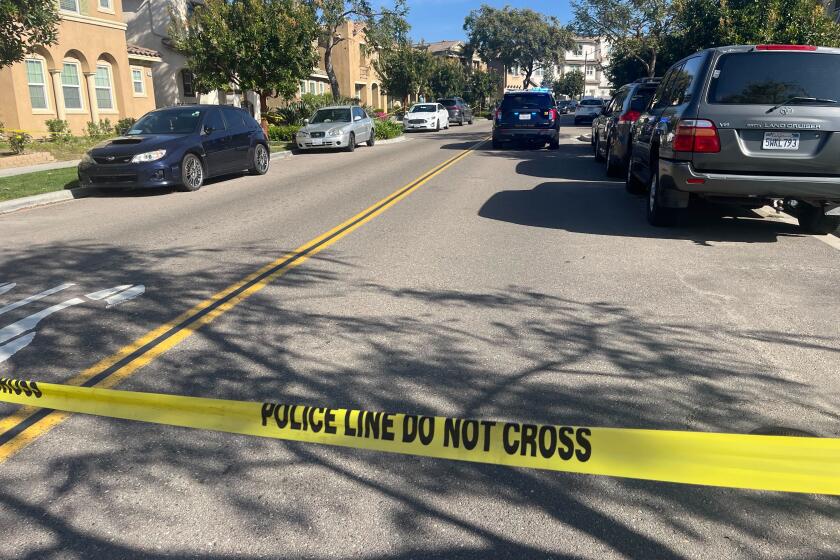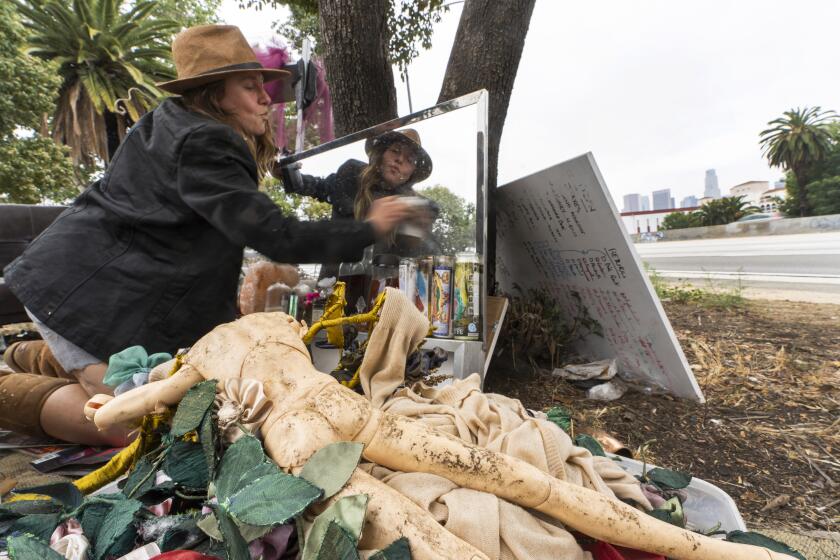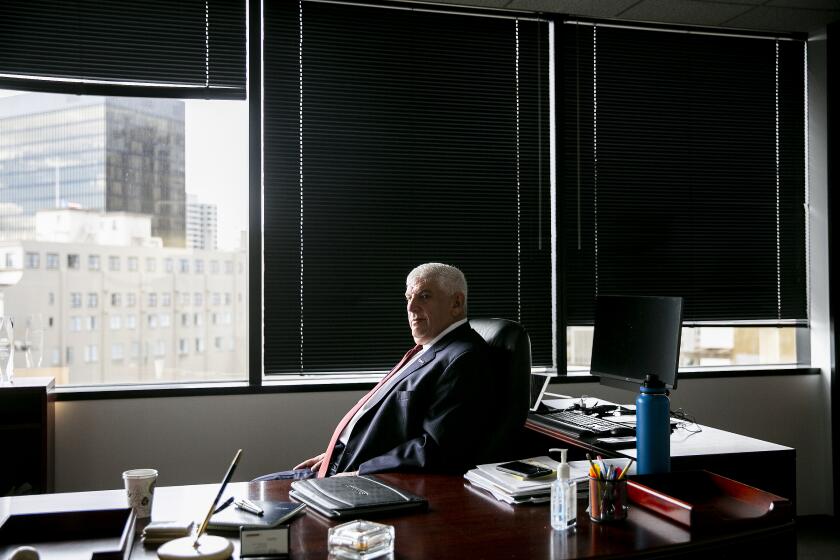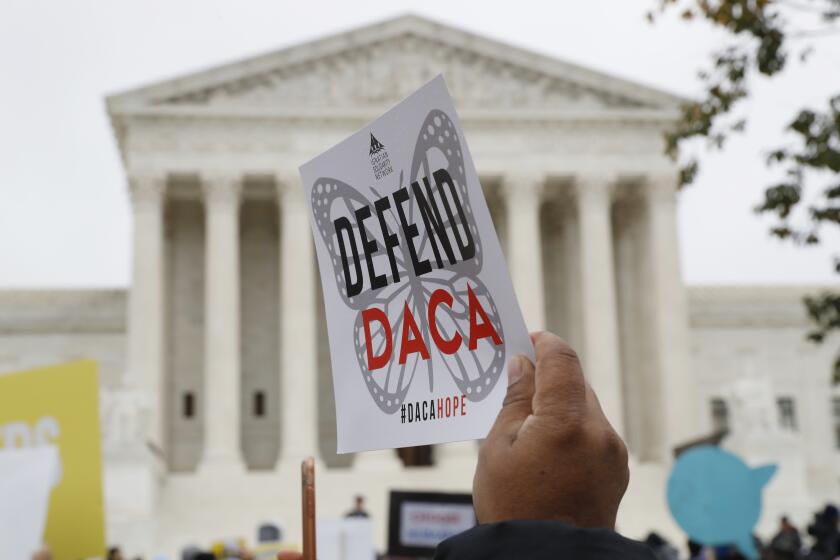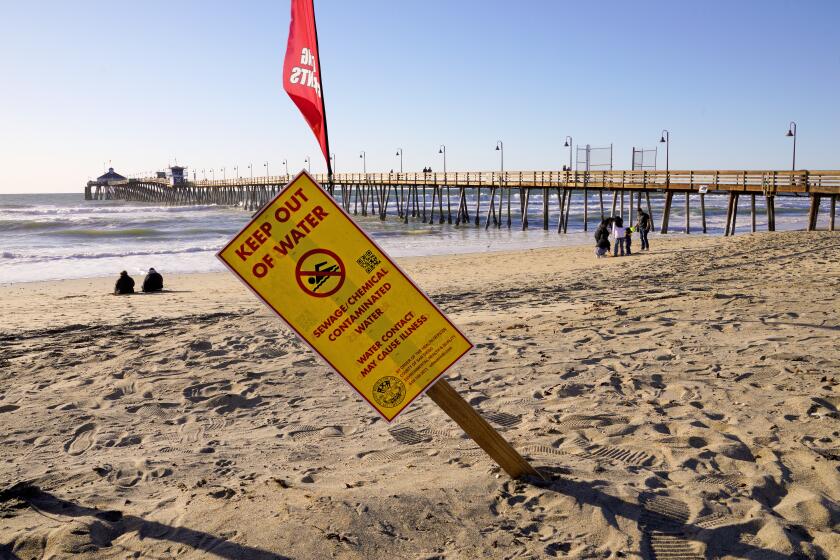Editorial: San Diego County’s foster care debacle demands an independent probe
A shocking Sunday article by The San Diego Union-Tribune’s Morgan Cook laid out in heartbreaking detail how a boy identified only as A.G. in court records first complained in 2006 of abusive behavior by his foster father, Michael Jarome Hayes. The documents show that Hayes was accused more than a dozen times — by an educator, a lawyer, a psychologist and others — of alleged abuse against A.G. and his twin brother, M.G., but that San Diego County authorities did not take the children from Hayes’ home until 2013.
It was only then — after Hayes notified the San Diego police that A.G. had run away — that Hayes’ depravity was exposed. He was eventually charged with 28 felonies involving sexual molestation and related crimes against A.G. and M.G. and three other children — and found guilty on eight counts. He is now serving a 20-year, eight-month sentence.
Citing a lawsuit by the twins, who have sued the county and 14 of its social workers over the handling of their cases, county Board of Supervisors Chair Kristin Gaspar offered inadequate generalities in response to questions from Cook. But Cook’s reporting showed that county authorities not only seemed to fail to take the abuse complaints seriously, they sent Hayes another foster child — putting that boy in harm’s way.
In federal court filings, these same authorities now blame the twins for the appalling treatment they faced, saying they “acted unreasonably, carelessly, and/or negligently in and about the matters alleged in the complaint in that they did not exercise ordinary care, caution, or prudence for their own safety and protection.” But as Cook reported, based “on the date ranges specified in the criminal charges to which Hayes pleaded guilty, A.G. was 6 or 7 when Hayes first molested him, and M.G. was 10 or 11.”
Yes, of course, this is a strategy meant to minimize county taxpayers’ legal exposure. But even if there is a legal motive for blaming the victims, the larger context of San Diego County’s all-too-recent history of foster care scandals only makes adopting that position all the more repugnant. A 2008 special report by the Union-Tribune’s Greg Moran detailed how 33 children had died in foster care in the county from 2000 to 2007. Three deaths involved physical abuse by caretakers. Other deaths stemmed from accidents, neglect and medical issues.
It is awful enough that it took authorities seven years to take seriously a foster child’s complaints of abuse. But when the refusal to review such serious allegations played out as county authorities already stood accused of gigantic shortcomings in their foster care oversight, it borders on unconscionable.
What’s even sadder is that the stories of A.G. and M.G. won’t feel all that surprising to longtime county observers. For years, supervisors and executives have patted themselves on the back for the county’s fiscal health while problems piled up at their feet. San Diego CityBeat detailed dozens of deaths in county jails, and officials challenged its methodology. Twenty people died and 600 fell ill countywide when county officials were slow to respond to a hepatitis A outbreak, and officials declared they handled it well. Supervisors repeatedly installed allies in vacant elected positions, and officials shrugged off public complaints about it. And four termed-out supervisors voted themselves big raises that dramatically increased their pensions.
This history shows the absolute need for an independent investigation of the county foster-care system to ensure better accountability and case management. Former Assemblyman Nathan Fletcher, a candidate for the 4th district county supervisor seat, was quick to call for a county grand jury probe. Whatever the inquiry, it should have no limits.
Twitter: @sdutIdeas
Facebook: San Diego Union-Tribune Ideas & Opinion
Get Essential San Diego, weekday mornings
Get top headlines from the Union-Tribune in your inbox weekday mornings, including top news, local, sports, business, entertainment and opinion.
You may occasionally receive promotional content from the San Diego Union-Tribune.

